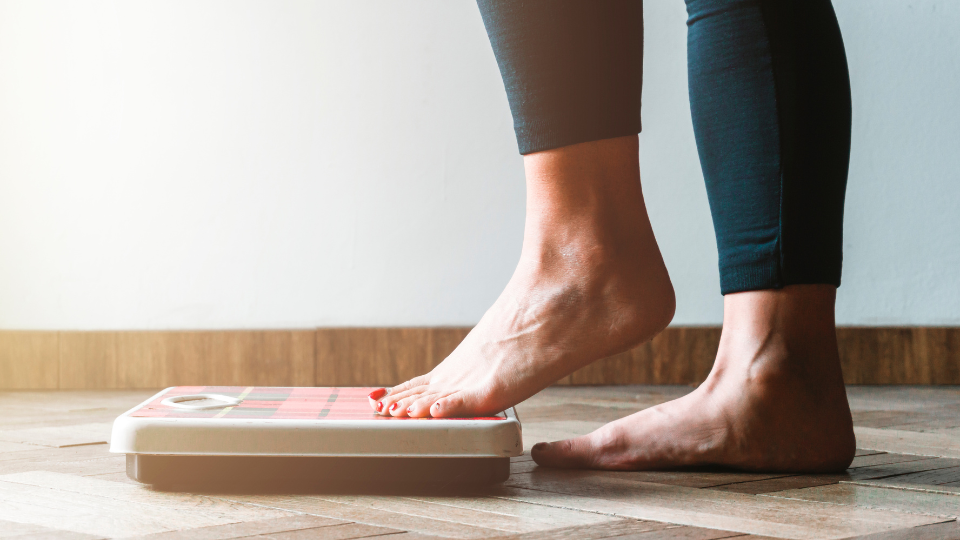Most people who go on a diet and lose weight will gain it back. The reasons for this are complex (click here for an explanation of why this happens), but the question remains: what is helpful for maintaining weight loss over the long run?
Studies show that people who engage in some kind of “self-monitoring behavior” like weighing themselves are more likely to keep the weight off. For many people, the scale can be a helpful and motivating tool, but for others, it can lead to frustration, fear, and may trigger feelings of failure.
This article will discuss some of the pros and cons of regular weighing, and share tips for monitoring your weight & health with a scale.
The way we look at numbers on the scale in large part determines whether or not the scale is a useful tool. The key is to use it the way we would use a thermostat or a blood glucose meter – to figure out if we need to adjust something. Recognize that the number you see on the bathroom scale is JUST a number. It is a measure of what you weigh at that moment. The number is not good or bad! It is not a measure of your effort, your worth, or your motivation.
It may take some time, but as you learn to lessen the self-judgment that often comes with seeing a number on the scale, the more you can focus on using the information to feel empowered & take action.
Why does it help?
Weighing yourself regularly tells you what is happening with your weight at that moment, and allows you to adjust things quickly if you notice it changing. As one person in our Facebook group wrote, “My biggest tip is to weigh daily. If I see a gain of 3 pounds, I cut back. It is a whole lot easier to lose 3 pounds than 30.”
How often? Daily or weekly?
While there is some debate among the experts about how often one should weigh oneself – all agree there is not a “one-size-fits-all” answer. Research does show that those who weigh themselves daily have more success with weight loss & weight maintenance than those who weigh themselves less often. Weighing daily can provide accountability.
In addition, daily weighing is linked with other healthy behaviors occurring more frequently, including fewer between meal snacks and more frequent bouts of exercise. Once weight loss is achieved, daily weighing may provide the additional motivation and accountability for some… while others can be successful moving to a once-weekly weighing regimen. There is not one right way.
For some people, daily (or even weekly) weighing can lead to fear & frustration. They may internalize the number on the scale as a negative judgment about themselves. They may jump on a short term “fix” (such as skipping a meal) instead of working on a more realistic long-term plan. For some, regular weighing is linked with some eating disorders, such as bulimia or anorexia – as well as anxiety & depression. It may take time to find the right frequency for self-weighing so it can be a helpful tool, or you may want to explore some of the other monitoring behaviors listed at the bottom of this article.
When to weigh?
Ideally, it is recommended to weigh oneself first thing in the morning, after using the bathroom and before eating. Make it a habit and aim for consistency. Wear nothing or wear the same thing each time before stepping on the scale. Use the same scale each time, and make sure it is on a hard surface – not carpet. If you are weighing yourself weekly (instead of daily), weigh yourself on the same day every week.
Think about the number you see on the scale as a piece of information, and not as a measure of your value as a human being. Remember, while daily weighing has proven benefits for many people, there are alternative ways to self-monitor. Find what works for you.

